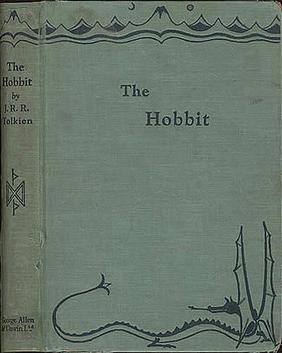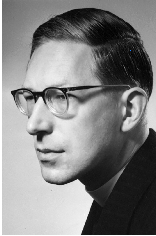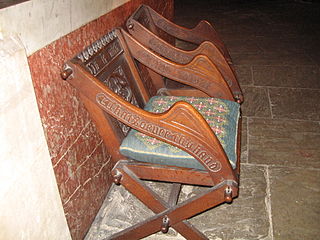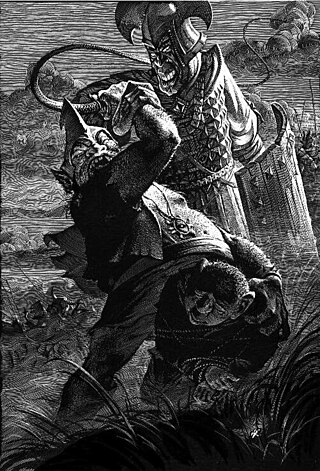Related Research Articles

The Bible is a collection of religious texts or scriptures, some, all, or a variant of which, are held to be sacred in Christianity, Judaism, Samaritanism, Islam, the Baha'i Faith, and many other Abrahamic religions. The Bible is an anthology, a compilation of texts of a variety of forms, originally written in Hebrew, Aramaic, and Koine Greek. These texts include instructions, stories, poetry, and prophecies, and other genres. The collection of materials that are accepted as part of the Bible by a particular religious tradition or community is called a biblical canon. Believers in the Bible generally consider it to be a product of divine inspiration, but the way they understand what that means and interpret the text varies.

The Book of Job, or simply Job, is a book found in the Ketuvim ("Writings") section of the Hebrew Bible (Tanakh) and the first of the Poetic Books in the Old Testament of the Christian Bible. Scholars generally agree that it was written between the 7th and 3rd centuries BCE. It addresses theodicy through the experiences of the eponymous protagonist. Job is a wealthy and God-fearing man with a comfortable life and a large family. God asks Satan for his opinion of Job's piety. When Satan states that Job would turn away from God if he were rendered penniless, without his family, and materially uncomfortable, God allows him to do so to prove Satan wrong.
The Book of Proverbs is a book in the third section of the Hebrew Bible and a book of the Christian Old Testament. When translated into Greek and Latin, the title took on different forms: in the Greek Septuagint (LXX) it became Παροιμίαι ; in the Latin Vulgate the title was Proverbia, from which the English name is derived.

Ecclesiastes is one of the Ketuvim ("Writings") of the Hebrew Bible and part of the Wisdom literature of the Christian Old Testament. The title commonly used in English is a Latin transliteration of the Greek translation of the Hebrew word קֹהֶלֶת. An unnamed author introduces "The words of Kohelet, son of David, king in Jerusalem" (1:1) and does not use his own voice again until the final verses (12:9–14), where he gives his own thoughts and summarises the statements of Kohelet; the main body of the text is ascribed to Kohelet himself.
The Old Testament (OT) is the first division of the Christian biblical canon, which is based primarily upon the 24 books of the Hebrew Bible, or Tanakh, a collection of ancient religious Hebrew and occasionally Aramaic writings by the Israelites. The second division of Christian Bibles is the New Testament, written in Koine Greek.

The Hobbit, or There and Back Again is a children's fantasy novel by English author J. R. R. Tolkien. It was published in 1937 to wide critical acclaim, being nominated for the Carnegie Medal and awarded a prize from the New York Herald Tribune for best juvenile fiction. The book is recognized as a classic in children's literature and is one of the best-selling books of all time, with over 100 million copies sold.
Sola scriptura is a Christian theological doctrine held by most Protestant Christian denominations, in particular the Lutheran and Reformed traditions, that posits the Bible as the sole infallible source of authority for Christian faith and practice. The Catholic Church considers it heterodox and generally the Orthodox churches consider it to be contrary to the phronema of the Church.
Open theism, also known as openness theology, is a theological movement that has developed within Christianity as a rejection of the synthesis of Greek philosophy and Christian theology. It is a version of free will theism and arises out of the free will theistic tradition of the church, which goes back to the early church fathers. Open theism is typically advanced as a biblically motivated and logically consistent theology of human and divine freedom, with an emphasis on what this means for the content of God's foreknowledge and exercise of God's power.

James Innell Packer was an English-born Canadian evangelical theologian, cleric and writer in the low-church Anglican and Calvinist traditions. He was considered one of the most influential evangelicals in North America, known for his best-selling book Knowing God, written in 1973, as well as his work as an editor for the English Standard Version of the Bible. He was one of the high-profile signers on the 1978 Chicago Statement on Biblical Inerrancy, a member on the advisory board of the Council on Biblical Manhood and Womanhood, and also was involved in the ecumenical book Evangelicals and Catholics Together in 1994. His last teaching position was as the board of governors' Professor of Theology at Regent College in Vancouver, British Columbia, in which he served from 1996 until his retirement in 2016 due to failing eyesight.

A Watcher is a type of biblical angel. The word occurs in both plural and singular forms in the Book of Daniel, where reference is made to the holiness of the beings. The apocryphal Books of Enoch refer to both good and bad Watchers, with a primary focus on the rebellious ones.

Michael Card is an American, Christian singer-songwriter, musician, author, and radio host from Franklin, Tennessee. He is best known for his contributions in contemporary Christian music, which combine folk-style melodies and instrumentation with an in-depth study of the Bible. Since his debut in 1981, Card has sold more than 4 million albums and has written 19 No. 1 singles. He has also authored several books, including the Gold Medallion Book Award winner, A Sacred Sorrow.
Graeme L. Goldsworthy is an Australian evangelical Anglican theologian specialising in the Old Testament and Biblical theology. His most significant work is a trilogy: Gospel and Kingdom, Gospel and Wisdom, and The Gospel in Revelation. Goldsworthy has authored several other books including According to Plan: The Unfolding Revelation of God in the Bible, and Preaching the Whole Bible as Christian Scripture. He holds a Master of Arts degree from the University of Cambridge in England, and Master of Theology and Doctor of Philosophy degrees from Union Theological Seminary, Richmond, Virginia.
Walter C. Kaiser Jr. is an American Evangelical Old Testament scholar, writer, public speaker, and educator. Kaiser is the Colman M. Mockler distinguished Professor of Old Testament and former President of Gordon-Conwell Theological Seminary in South Hamilton, Massachusetts, retired June 30, 2006. He was succeeded by James Emery White.
Kevin Jon Vanhoozer is an American theologian and current research professor of Systematic Theology at Trinity Evangelical Divinity School (TEDS) in Deerfield, Illinois. Much of Vanhoozer's work focuses on systematic theology, hermeneutics, and postmodernism.
Messianic Bible translations are translations, or editions of translations, in English of the Christian Bible, some of which are widely used in the Messianic Judaism and Hebrew Roots communities.
Peter Eric Enns is an American Biblical scholar and theologian. He has written widely on hermeneutics, Christianity and science, historicity of the Bible, and Old Testament interpretation. Outside of his academic work Enns is a contributor to HuffPost and Patheos. He has also worked with Francis Collins' The BioLogos Foundation. His book Inspiration and Incarnation challenged conservative/mainstream Evangelical methods of biblical interpretation. His book The Evolution of Adam questions the belief that Adam was a historical figure. He also wrote The Bible Tells Me So: Why Defending Scripture Has Made Us Unable to Read It and The Sin of Certainty: Why God Desires Our Trust More than Our 'Correct' Beliefs.
Tremper Longman III is an Old Testament scholar, theologian, professor and author of several books, including 2009 ECPA Christian Book Award winner Dictionary of the Old Testament: Wisdom, Poetry & Writings.
John Edgar Goldingay is a British Old Testament scholar and translator and Anglican cleric. He is the David Allan Hubbard Professor Emeritus of Old Testament in the School of Theology of Fuller Theological Seminary in California.

Ecclesiastes 9 is the ninth chapter of the Book of Ecclesiastes in the Hebrew Bible or the Old Testament of the Christian Bible. The book contains the philosophical and theological reflections of a character known as Qoheleth, a title literally meaning "the assembler" but traditionally translated as "the Teacher" or "The Preacher". The identity of Qoheleth it unknown. In traditional Jewish texts such as the Peshitta, Targum, and Talmud, authorship of Ecclesiastes is attributed to King Solomon, due to the statement in Ecclesiastes 1:1 which identifies Qoheleth as the "son of David, king in Jerusalem". However, it is generally agreed upon by contemporary scholars that the book could not have been written in the 10th century during the time of Solomon. It is now thought to be one of the latest books in the Old Testament to be written, likely sometime between the 5th and 3rd centuries BCE.

The author J. R. R. Tolkien uses many proverbs in The Lord of the Rings to create a feeling that the world of Middle-earth is both familiar and solid, and to give a sense of the different cultures of the Hobbits, Men, Elves, and Dwarves who populate it. Scholars have also commented that the proverbs are sometimes used directly to portray characters such as Barliman Butterbur, who never has time to collect his thoughts. Often these proverbs serve to make Tolkien's created world seem at once real and solid, while also remaining somewhat unfamiliar. Further, the proverbs help to convey Tolkien's underlying message about providence; while he keeps his Christianity hidden, readers can see that what appears as luck to the protagonists reflects a higher purpose throughout Tolkien's narrative.
References
- ↑ "Legacy Center Founders".
- ↑ "Books and Culture".
- ↑ "New Living Translation: Discover the NLT - Meet the Scholars".
- ↑ BibleGateway.com, Version Information: An Introduction to The [expanded] Bible™, accessed 3 March 2023
- ↑ "Taylor Faculty Page".
- ↑ "Rest for the Weary".
- ↑ "How to Pick a President".
- ↑ "Living with a Big Poem".
- ↑ "Many Bibles, One Scripture: The Gift of Translation".
- ↑ "Wizards and Hobbits".
- ↑ "In Pursuit of Character, Part 1".
- ↑ "In Pursuit of Character, Part 2".